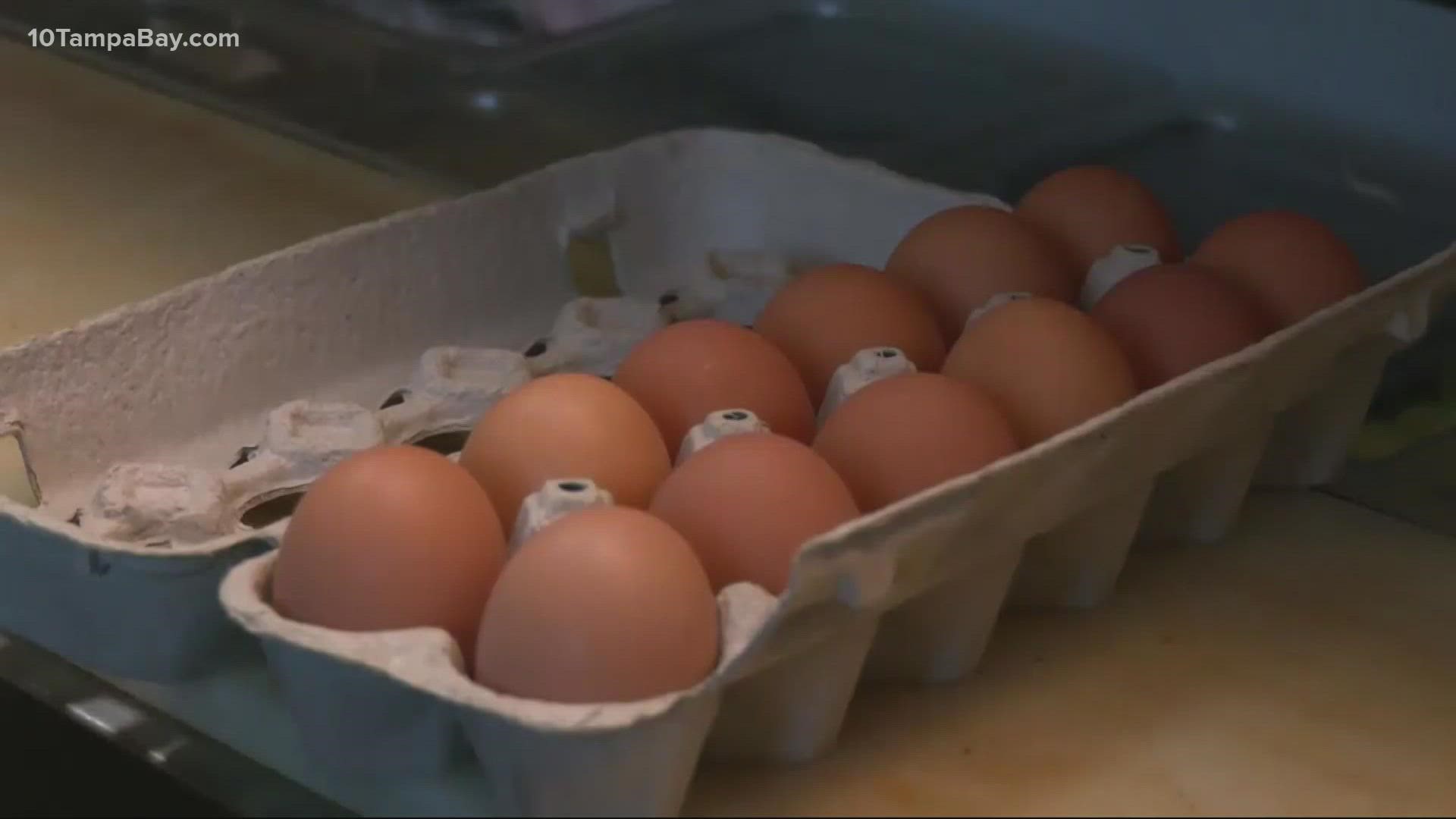TAMPA, Fla. — The rising cost of food is not a new story. But as we get closer to Easter and Passover, both rather egg-centric holidays, you may find yourself shelling out even more cash.
In addition to inflation, which is the highest it's been since 1981, the highly infectious bird flu is driving up the cost of eggs.
The national average price for a dozen large white eggs is $2.50, according to the U.S. Department of Agriculture. Last year it was $1.60.
This current avian influenza outbreak, first detected in Indiana on Feb. 8, is responsible for the death of some 23 million egg-laying birds across the country — which means the eggs that are available are costing businesses and consumers more. The virus is rarely transmitted to humans but can be deadly for domesticated birds like chickens and turkeys.
Egg prices increased by 2.2% in February alone, according to a March price outlook from the USDA. And along with poultry prices, they're only expected to keep going up.
"An ongoing outbreak of highly pathogenic avian influenza could contribute to poultry and egg price increases through reduced supply or decrease prices through lowered international demand for U.S. poultry products or eggs," the report reads.
The price of food, in general, has gone up significantly since this time last year. From March 2021 to March 2022, milk prices have gone up 13.3%, fruits and vegetables have gone up 8.5% and coffee has gone up 11.2%, according to the U.S. Department of Labor's March consumer price index.
And it doesn't look like we can expect a break anytime soon. The USDA predicts that grocery prices could increase by another 4% by the end of the year. The price for eating out is expected to go up 5.5 -6.5%.
A bit of good news: there's no need to scramble ahead of the upcoming holidays. The USDA says the egg supply is "sufficient to ample for current needs," which means there are plenty of eggs to go around. And, as the USDA explains, many retailers are offering a larger variety of cage-free eggs to "soften the shock of higher conventional caged egg prices at the dairy case."

